What are HR and payroll – and why does one affect the other?
Payroll and human resources may be two different functions yet the work they do is often closely connected. What does each of the functions do? Why is there such an overlap? And what opportunities are there to make the flow between them as effective as possible?
Payroll handles employee payments and tax deductions, while HR focuses on hiring, employee relations, and performance management. They overlap in managing employee data and ensuring compliance with employment laws.
Some of payroll’s main functions

Payroll refers to the process involved in paying employees their salaries or wages. As well as making sure the money reaches the employees when it should do, it involves things like making the necessary statutory deductions. That means deducting income tax and national insurance contributions (NICs) via the Pay As You Earn (PAYE) system every pay period and then paying it to HMRC (Her Majesty’s Revenue and Customs). Depending on employees’ earnings, payroll might also be required to pay employer’s Class 1 NICs. And it’s also responsible for making sure every employee gets a payslip too.
Beyond that, payroll could be involved in many things: calculating bonuses, dealing with statutory payments like sick pay, managing payments for more complex variable working hour arrangements like overtime shifts, calculating holiday payments, reimbursing expenses, making redundancy payments…the list goes on!
The role of HR

Most HR professionals would agree that the role of HR can be challenging to describe simply because it can encompass so much. Essentially, it’s all about getting the best people for the company then getting the best from them!
Inevitably that means it covers a huge range of activities. They could include things like creating and implementing HR strategies for engaging employees or for developing a particular type of organisational culture. They could be activities like recruitment, performance development or the application of employment law and HR policies within the company. And in virtually every instance it will cover transactional responsibilities like dealing with compensation issues, updating employee records, handling HR data and providing reports.
Can HR handle payroll?
Human resources can handle payroll, especially in smaller companies where combining these functions makes sense. However, it’s important to note that payroll requires a specific set of skills and knowledge related to tax laws, compliance, and financial management.
HR’s primary focus is on human resources and employee relations, which include recruitment, employee development, and organisational culture. When HR takes on payroll responsibilities, it can sometimes stretch resources thin, making it crucial to have the right tools and systems in place to manage both functions efficiently.
Should payroll report to HR or accounting?
Deciding whether payroll should report to human resources or accounting depends on the structure and needs of your business or organisation. In some companies, payroll reports to HR because of the close relationship between payroll and employee relations.
In others, it makes more sense for payroll to report to accounting due to the financial and compliance aspects involved. Ideally, both departments should work closely together to ensure seamless operations, accurate data flow, and compliance with legal requirements.
Is HR responsible for payroll?
While HR often plays a significant role in payroll, they are not solely responsible for it. Payroll responsibilities typically fall under the finance or accounting department, as they handle the financial aspects such as tax deductions and compliance. However, HR is needed in order to provide accurate employee data, managing employee relations, and to make sure payroll reflects changes in employment status, benefits, and compensations. In many organisations, they both tend to work together as a unit.
When do the two functions need to work together?

Clearly there is going to be quite an overlap in terms of HR and payroll activity.
HR recruits a new employee and sets them up on the system; it’s then over to payroll to make sure all aspects of their payment are taken care of. Excellent employee performance could result in a salary increase or bonus payment much to the delight of an employee – but a failure to then pay it on time would certainly take the shine off it so good communication between the two functions is key. An employee goes on maternity leave; it’s up to HR and payroll to ensure the transition onto maternity pay runs smoothly.
After all, it’s a time when the employee has other priorities to deal with and she shouldn’t have to worry about incorrect payments while she’s off. Sometimes it’s not such a happy occasion; perhaps a company has to make redundancies and it’s incumbent on both HR and payroll to manage the situation and make the appropriate payments sensitively and accurately.
Error free and efficient communication along with confidential data handling between payroll and HR, along with any other managers involved, is absolutely essential. It must be seamless.
So are there any opportunities for payroll and HR integration?

With so much overlap, could any opportunities present themselves where processes and activities could be integrated? This wouldn’t only be a benefit in terms of making the processes slicker, more efficient and less vulnerable to errors. Many companies are keen for their HR department to take on a more strategic role. By reducing the time HR practitioners spend on payroll related activity – including time spent dealing with employee queries resulting from payment mistakes – it increases the opportunity to divert their energies into transformational business projects and priorities instead.
One solution can present itself through the use of software. Some companies may rely on time consuming manual processes and spreadsheets. Other companies might already recognise the many benefits of using HR software and payroll software yet have two separate systems. With so much alignment between the activities of the two functions, it makes a great deal of sense to look at a software solution that delivers both.
It’s not simply about saving a great deal of time at software implementation phase. Integrated HR and payroll software is designed to work seamlessly to reduce the amount of input needed and to ensure a highly effective and efficient flow of information. It can also be used to become the backbone of some of the more strategic work within both departments, and the business as a whole, by enabling quick, detailed and accurate reporting.
Does this sound like something that could help your company? If you’d like to know more then we can talk you through the options and give you advice about how it could work in your business. Even if you do already have payroll or HR systems in place, we can integrate our software with it so please get in touch for more details.

